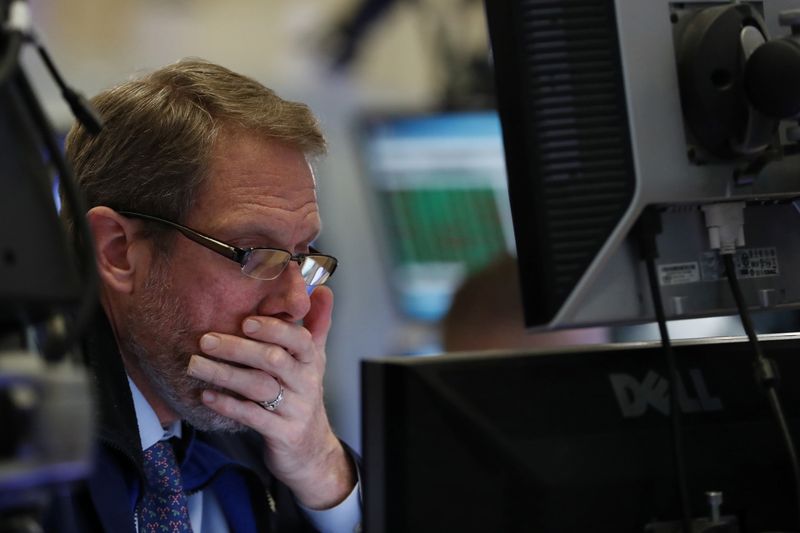This post was originally published on this site

Investing.com — The S&P 500 slumped Friday, as a stronger-than-expected monthly jobs report muted recent hopes of a Fed pivot, and shifted investor focus to the prospect of another jumbo-sized rate hike next month.
The S&P 500 fell 2.9%, the Dow Jones Industrial Average fell 2.2%, or 669 points, and the Nasdaq slipped 3.7%.
The U.S. economy created 263,000 jobs last month, above the 250,000 economists’ had expected, while the unemployment rate unexpectedly dropped to 3.5% as fewer than expected people entered the labor market.
Wage growth of 0.3% was in line with forecasts, but slowed to 5% from 5.2% in 12 months through September.
While this is a “welcome development for the Fed,” according to Jefferies, it won’t provide a ”justification for slowing from the recent pace of 75 bp rate hikes, so we expect another one at the November meeting.”
The revival of hawkish Fed bets pushed Treasury yields higher, pushing growth areas of the market including tech and consumer discretionary stocks into the red.
Microsoft (NASDAQ:MSFT) fell more than 5% followed by Meta (NASDAQ:META), Apple (NASDAQ:AAPL) and Alphabet (NASDAQ:GOOGL) as a rising rate environment tends to sour sentiment on higher-valued stocks with a longer payoff horizon.
Tech was also pushed deeper in the red by a slump in chip stocks following a profit warning from chipmaker AMD.
Advanced Micro Devices (NASDAQ:AMD) fell more than 13% after announcing preliminary results for the third quarter that missed Wall Street estimates.
The miss on revenue guidance was driven by a “weaker-than-expected PC market & the resulting inventory correction in the PC supply chain,” Deutsche Bank said in a note after cutting its price target on the stock to $90 from $95.
NVIDIA (NASDAQ:NVDA) fell more than 7%, Taiwan Semiconductor Manufacturing (NYSE:TSM) fell 5% and Qualcomm (NASDAQ:QCOM) was down more than 3%.
On the earnings front, Levi Strauss & Co (NYSE:LEVI) fell more than 9% after trimming its full-year guidance as ongoing supply chain troubles and a stronger dollar bite.
The broader market drop comes ahead of fresh inflation data next week that will influence the Fed’s thinking on rate hikes. But without a “precipitous drop” in economic growth, or a deep recession, the slowdown in the pace of inflation is going to be “slower than what everybody hopes,” Robert Conzo, CEO of The Wealth Alliance told Investing.com’s Yasin Ebrahim in an interview on Friday.
“You’re going to have a period of sideways markets as the economy is unlikely to go into a deep recession because people are working and spending,” Conzo said. “That trend isn’t going to change very much, meaning that inflation will be sticky,” he added.

